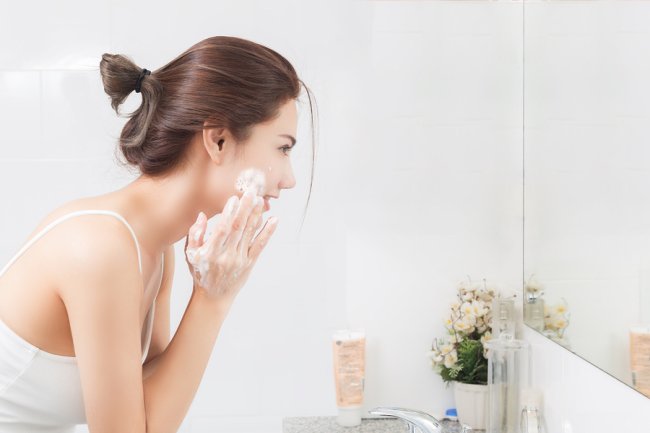Get the Facts about Adult Acne

Most adolescents can’t wait to grow up and become truly independent, acne-free adults. So it’s a major disappointment to discover that acne can continue to rear its ugly head well into adulthood. Plus, the acne treatments you used to use as a teen probably aren’t working as well as you expected. But there’s good news: Professional dermatology services are safe and effective, and they work quickly. Don’t wait any longer to schedule an appointment. You deserve the ability to put your best face forward.
Causes and Risk Factors of Adult Acne
Women tend to develop adult acne more frequently than men. One possible reason is hormonal fluctuations. Hormonal imbalances can lead to acne breakouts around the time of a woman’s period, and after starting or discontinuing birth control pills. Pregnancy, perimenopause, and menopause also result in hormonal changes. Even stress can trigger hormonal imbalances. Specifically, stress can cause the body to produce an excessive amount of androgens, which are hormones that stimulate the hair follicles and oil glands of the skin. Other possible causes and risk factors of adult acne include:
- Medication side effects
- Undiagnosed medical condition
- Family history
- Pore-clogging hair and skin care products
Skin Care Routines for Adult Acne Sufferers
Aging skin is drier than youthful skin. This means that the skin-drying products you used as a teen aren’t necessarily the best choice now. Your dermatologist can recommend pore-friendly skin care products. In general, look for gentle cleansers, and non-comedogenic moisturizers and cosmetics. Retinoid creams can be a good option for adults who are concerned about both acne and wrinkles.
Treatment Options for Adult Acne
Your skin is unique. Your dermatologist will do a thorough skin analysis to determine the most appropriate treatment options for you. You may be a good candidate for topical or oral medications. Light therapy designed specifically for acne treatment can also be an effective choice, particularly if you’re concerned about possible side effects from medications.
Teens and adults in Salt Lake City can find acne treatments that really work at Swinyer-Woseth Dermatology. Our skillful dermatology team is committed to helping our patients look and feel their best. Call us at 801-266-8841.
